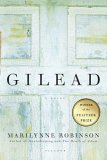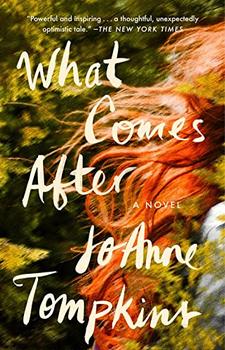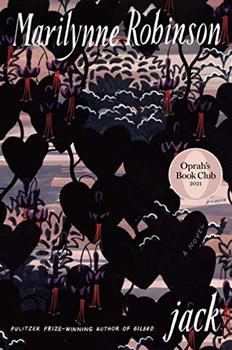Summary | Excerpt | Reading Guide | Reviews | Beyond the book | Read-Alikes | Genres & Themes | Author Bio

A Novel
by Marilynne Robinson"Robinson's prose is beautiful, shimmering and precise; the revelations are subtle but never muted when they come, and the careful telling carries the breath of suspense....Robinson truly succeeds in what is destined to become her second classic."
In 1956, toward the end of Reverend John Ames's life, he begins a letter to
his young son, an account of himself and his forebears. Ames is the son of an
Iowan preacher and the grandson of a minister who, as a young man in Maine, saw
a vision of Christ bound in chains and came west to Kansas to fight for
abolition: He "preached men into the Civil War," then, at age fifty,
became a chaplain in the Union Army, losing his right eye in battle. Reverend
Ames writes to his son about the tension between his father--an ardent
pacifist--and his grandfather, whose pistol and bloody shirts, concealed in an
army blanket, may be relics from the fight between the abolitionists and those
settlers who wanted to vote Kansas into the union as a slave state. And he tells
a story of the sacred bonds between fathers and sons, which are tested in his
tender and strained relationship with his namesake, John Ames Boughton, his best
friend's wayward son.
This is also the tale of another remarkable vision--not a corporeal vision of
God but the vision of life as a wondrously strange creation. It tells how wisdom
was forged in Ames's soul during his solitary life, and how history lives
through generations, pervasively present even when betrayed and forgotten.
Gilead is the long-hoped-for second novel by one of our finest writers, a
hymn of praise and lamentation to the God-haunted existence that Reverend Ames
loves passionately, and from which he will soon part.
Fans of Robinson's debut Housekeeping have been waiting 23 years for her to publish a second novel. The result is worth the wait...continued
Full Review
(417 words)
This review is available to non-members for a limited time. For full access,
become a member today.
(Reviewed by BookBrowse Review Team).
Background Information:
The Biblical Gilead is a region near the Jordan River which is
described as having plants with healing properties. According to some
sources, the Hebrew origin of the word simply means 'rocky area.' -
which begs the question whether it makes an ironic or symbolically
accurate title for Robinson's novel?
"Is there no balm in Gilead? Is there no physician there? Why then is
not the health of the daughter of my people recovered?" Jeremiah 8:22
More Information
An article from
Publishers
Weekly about Housekeeping
Pictures of the
Gilead area.
This "beyond the book" feature is available to non-members for a limited time. Join today for full access.

If you liked Gilead, try these:

by JoAnne Tompkins
Published 2022
After the shocking death of two teenage boys tears apart a community in the Pacific Northwest, a mysterious pregnant girl emerges out of the woods and into the lives of those same boys' families - a moving and hopeful novel about forgiveness and human connection.

by Marilynne Robinson
Published 2021
Marilynne Robinson, winner of the Pulitzer Prize and the National Humanities Medal, returns to the world of Gilead with Jack, the latest novel in one of the great works of contemporary American fiction.
Finishing second in the Olympics gets you silver. Finishing second in politics gets you oblivion.
Click Here to find out who said this, as well as discovering other famous literary quotes!